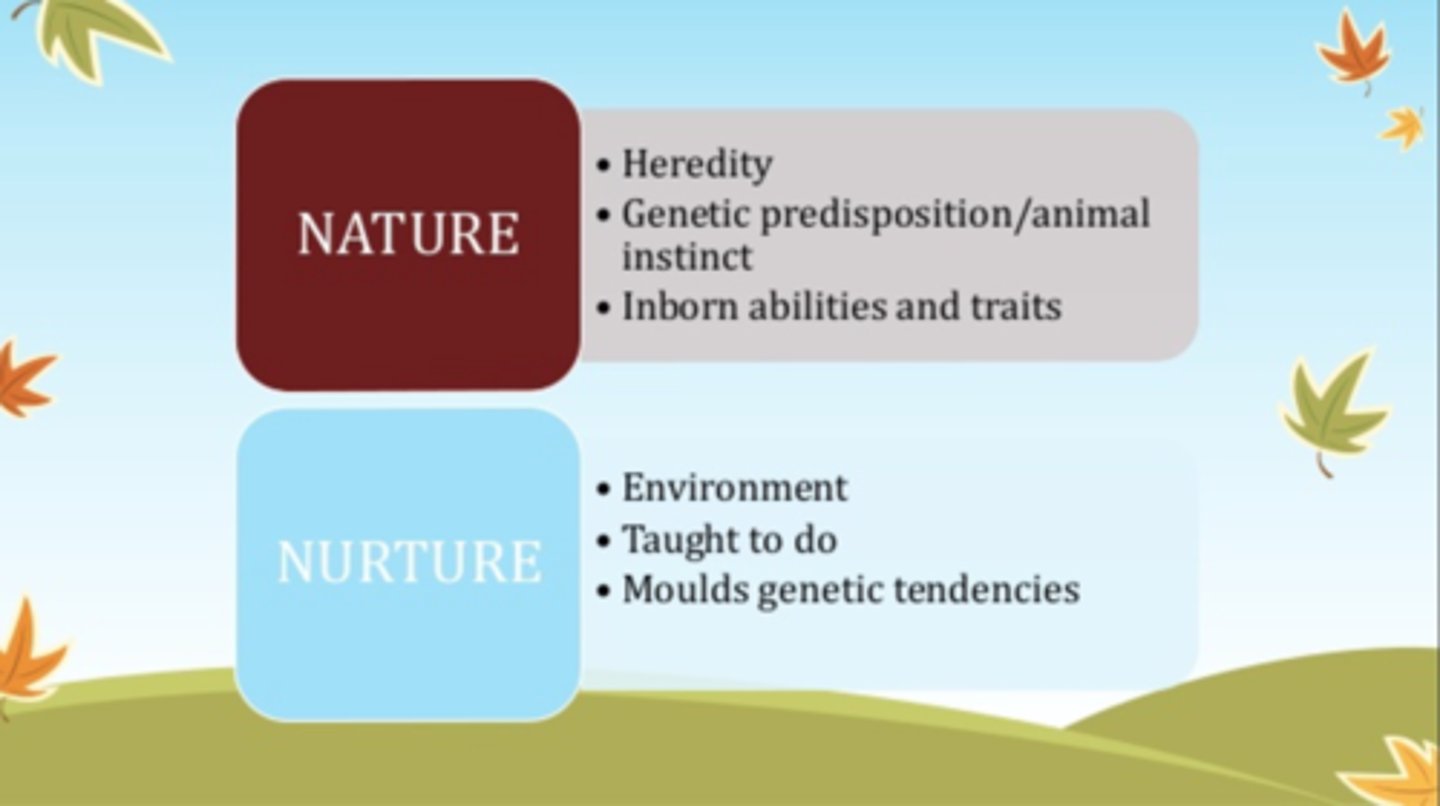AP Psychology: Topic 3.1 - Themes and Methods in Developmental Psychology
1/5
There's no tags or description
Looks like no tags are added yet.
Name | Mastery | Learn | Test | Matching | Spaced |
|---|
No study sessions yet.
6 Terms
Chronological development
the various periods of life (e.g., infancy, adolescence, middle age, old age) and the typical years of life these happen
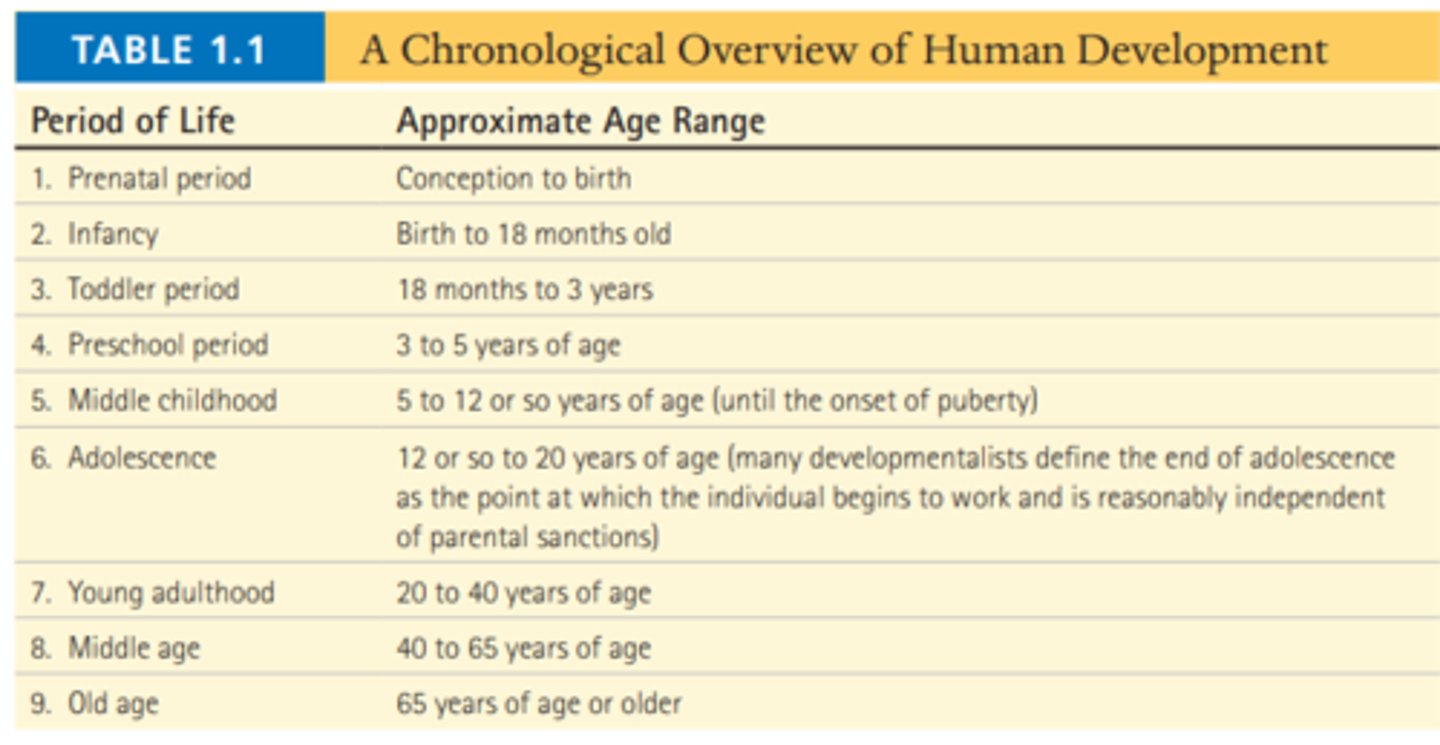
Continuous development
the idea that changes with age are cumulative and occur gradually (e.g., Vygotsky's theory)
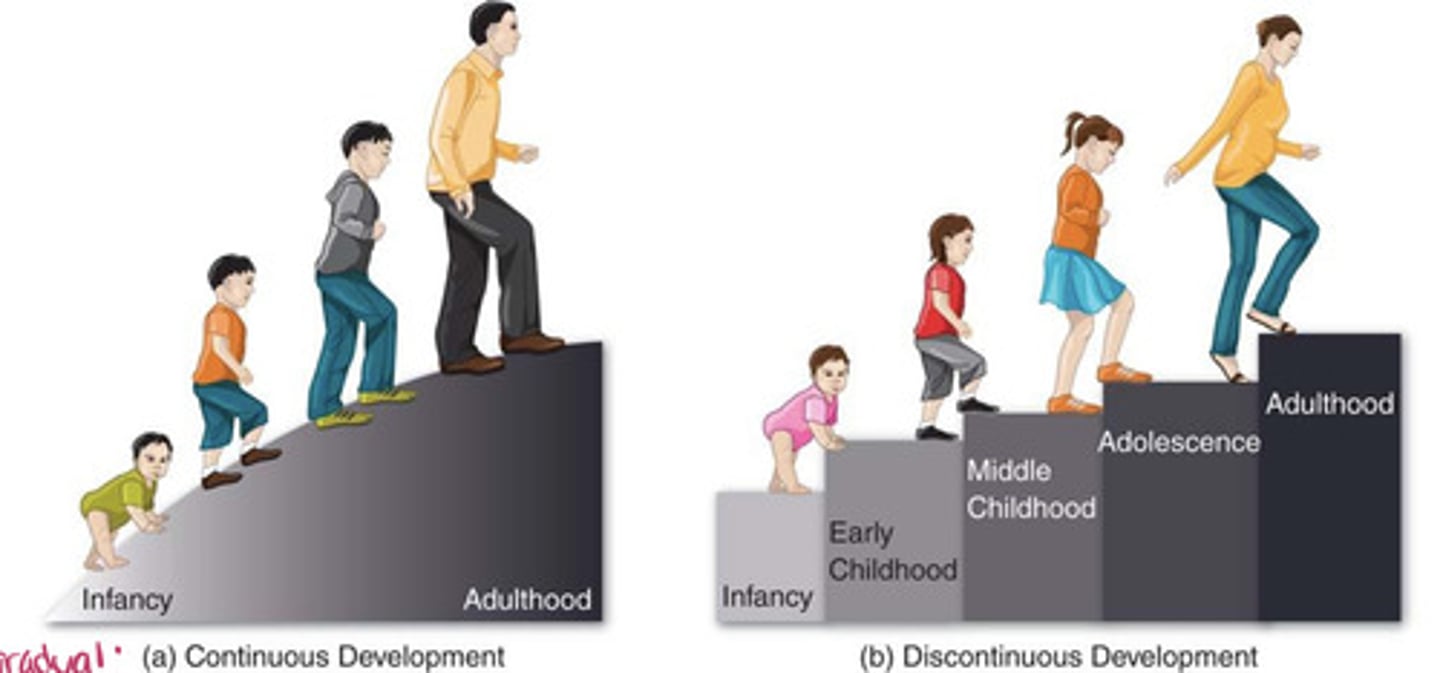
Discontinuous development
the idea that development takes place in unique stages, which happen at specific times or ages (e.g., Erikson's 8 stages of development)
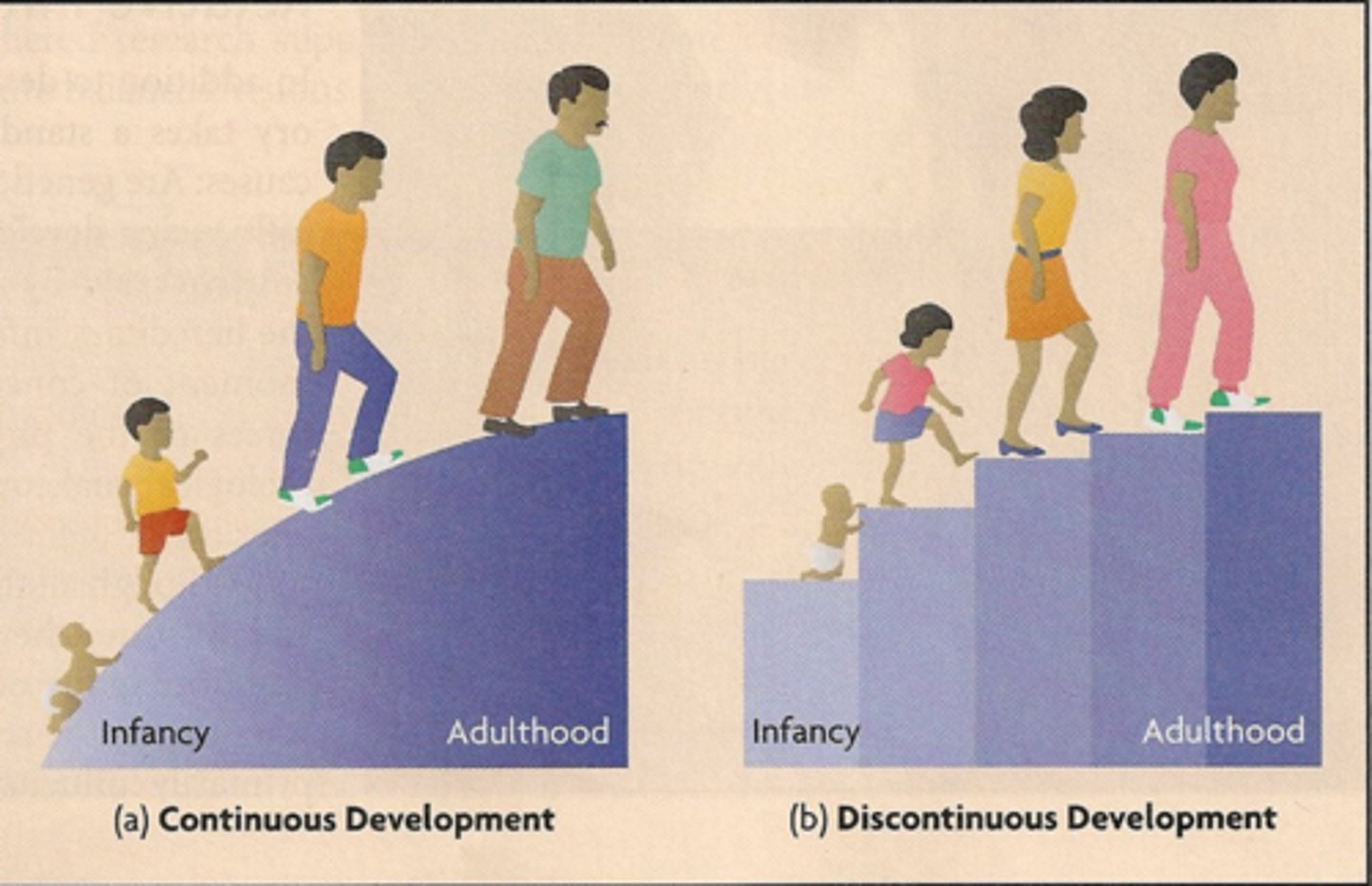
Lifespan development
the study of patterns of growth, change, and stability in behavior that occur throughout the entire life span
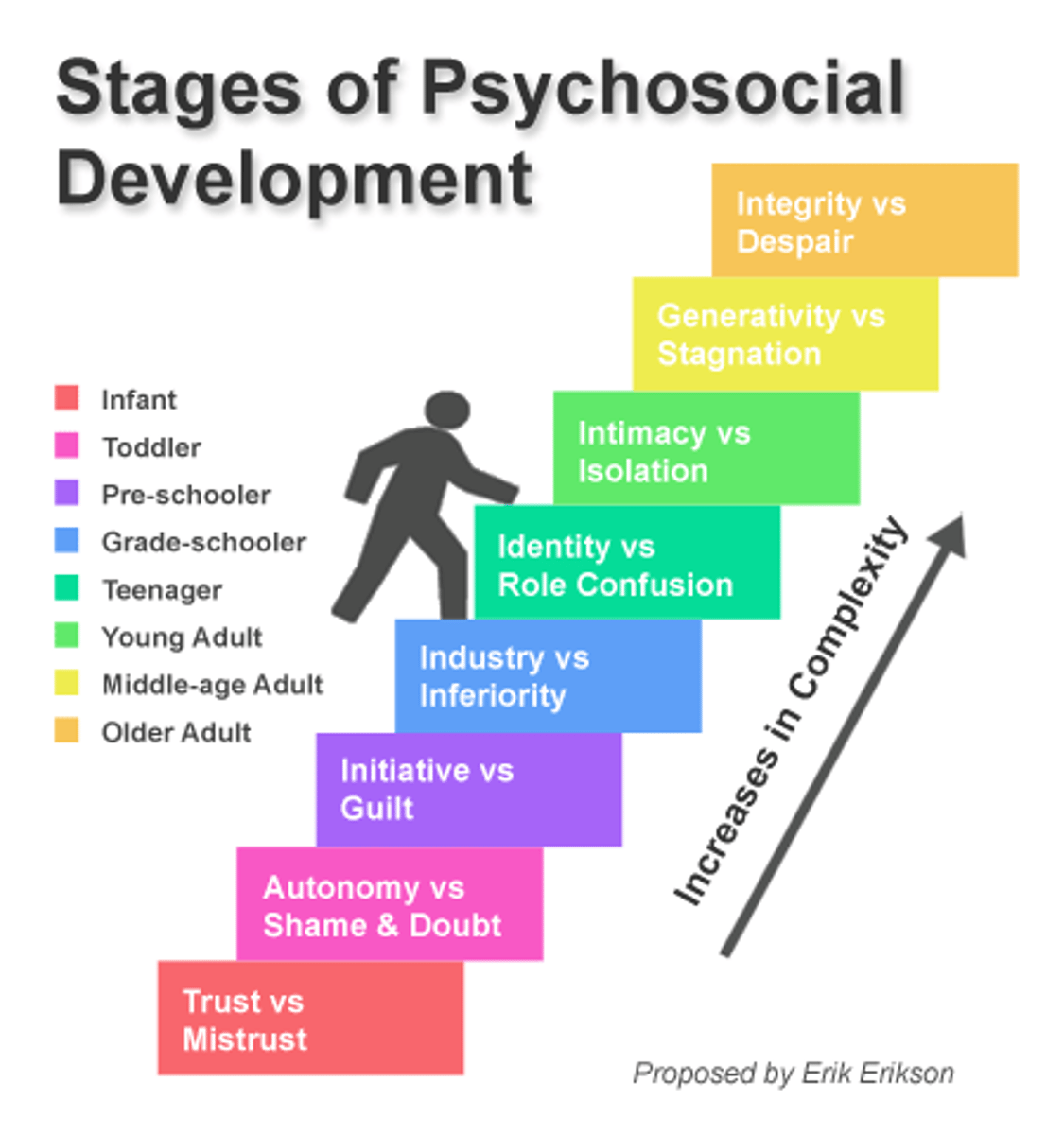
Stability and change
stability refers to traits and behaviors that remain more or less constant throughout a person's life, while change refers to traits and behaviors that are more fluid and flexible

Nature and nurture
the debate of whether genetics or environment is primarily responsible for driving behavior
